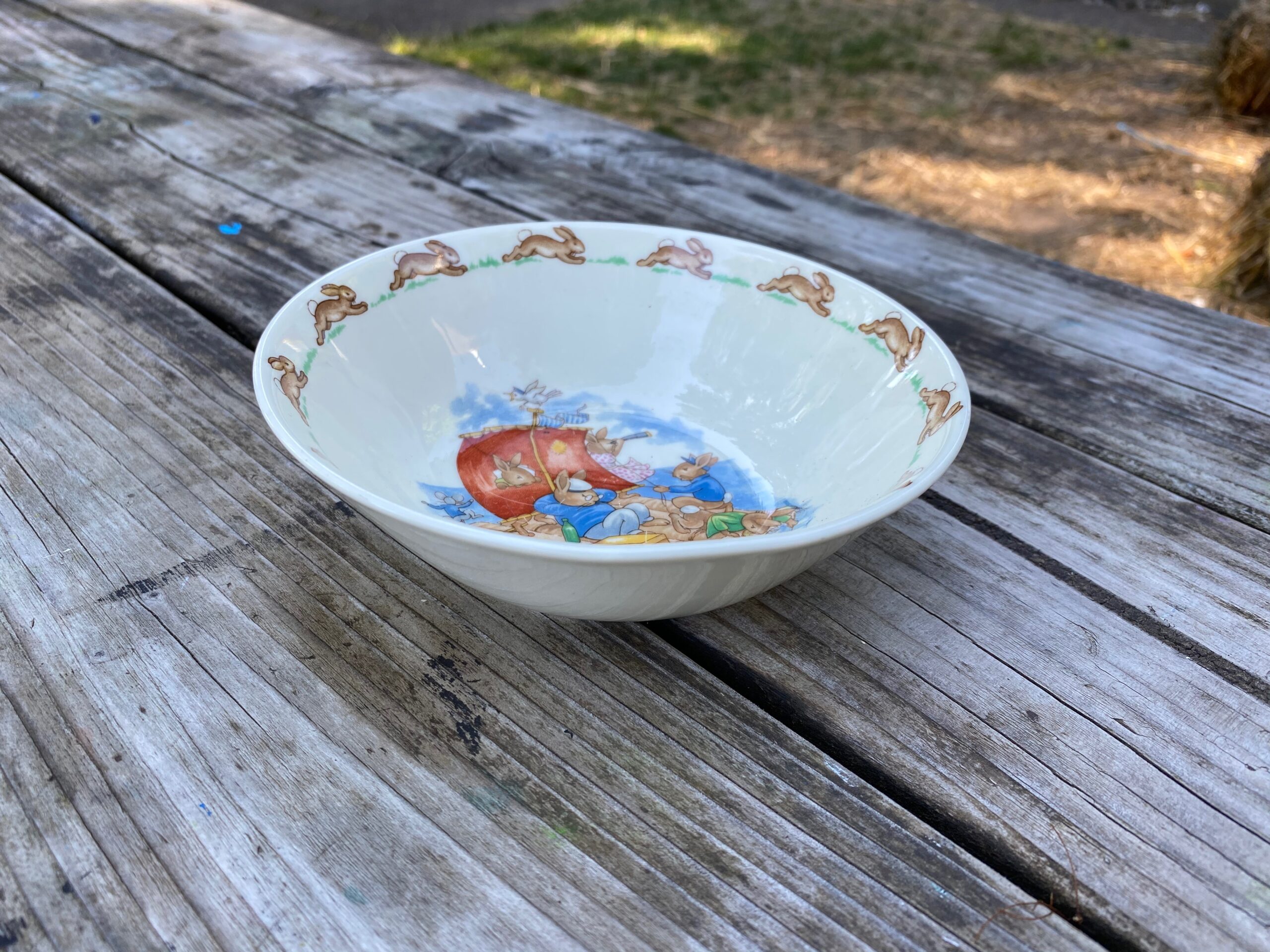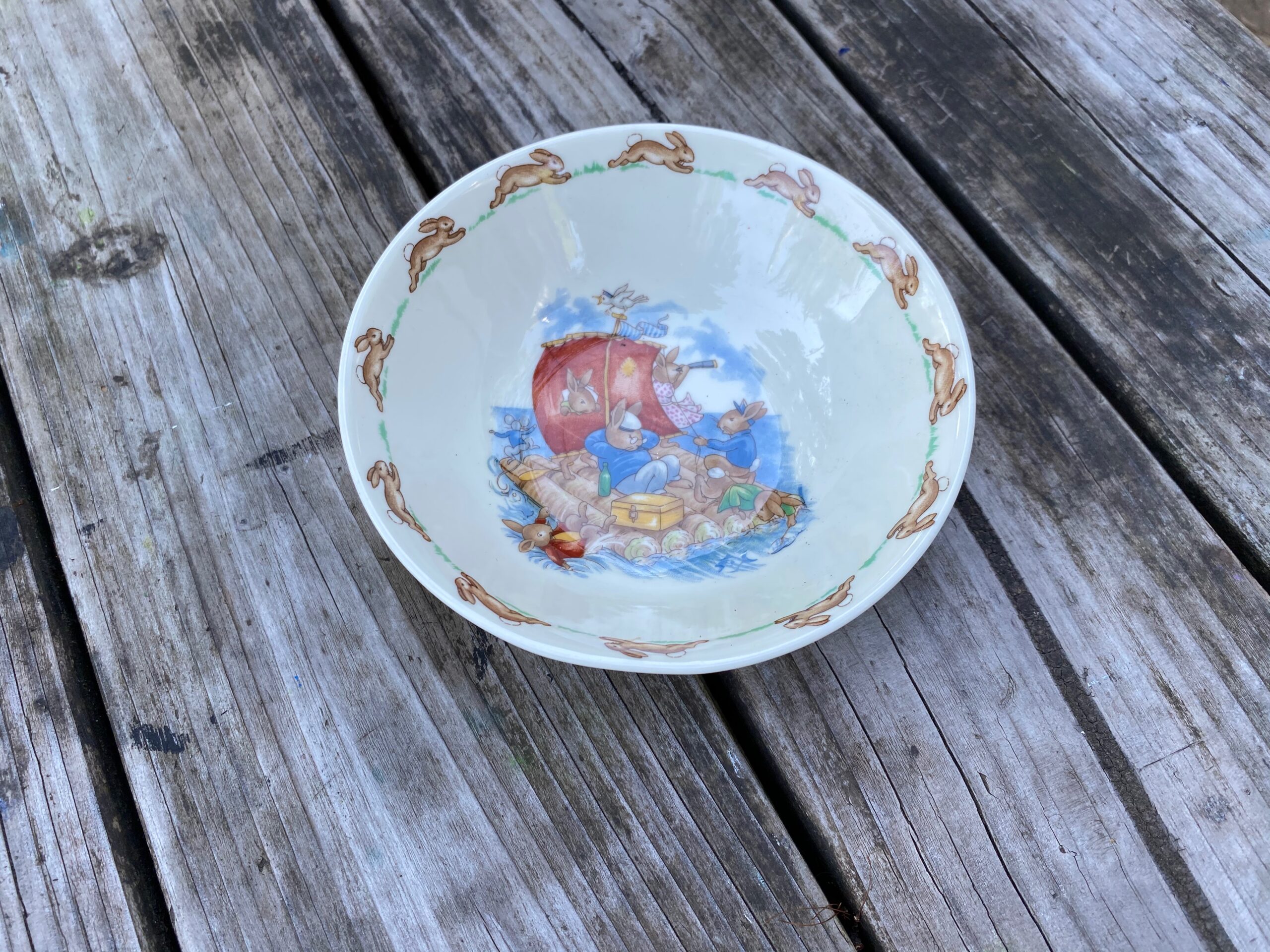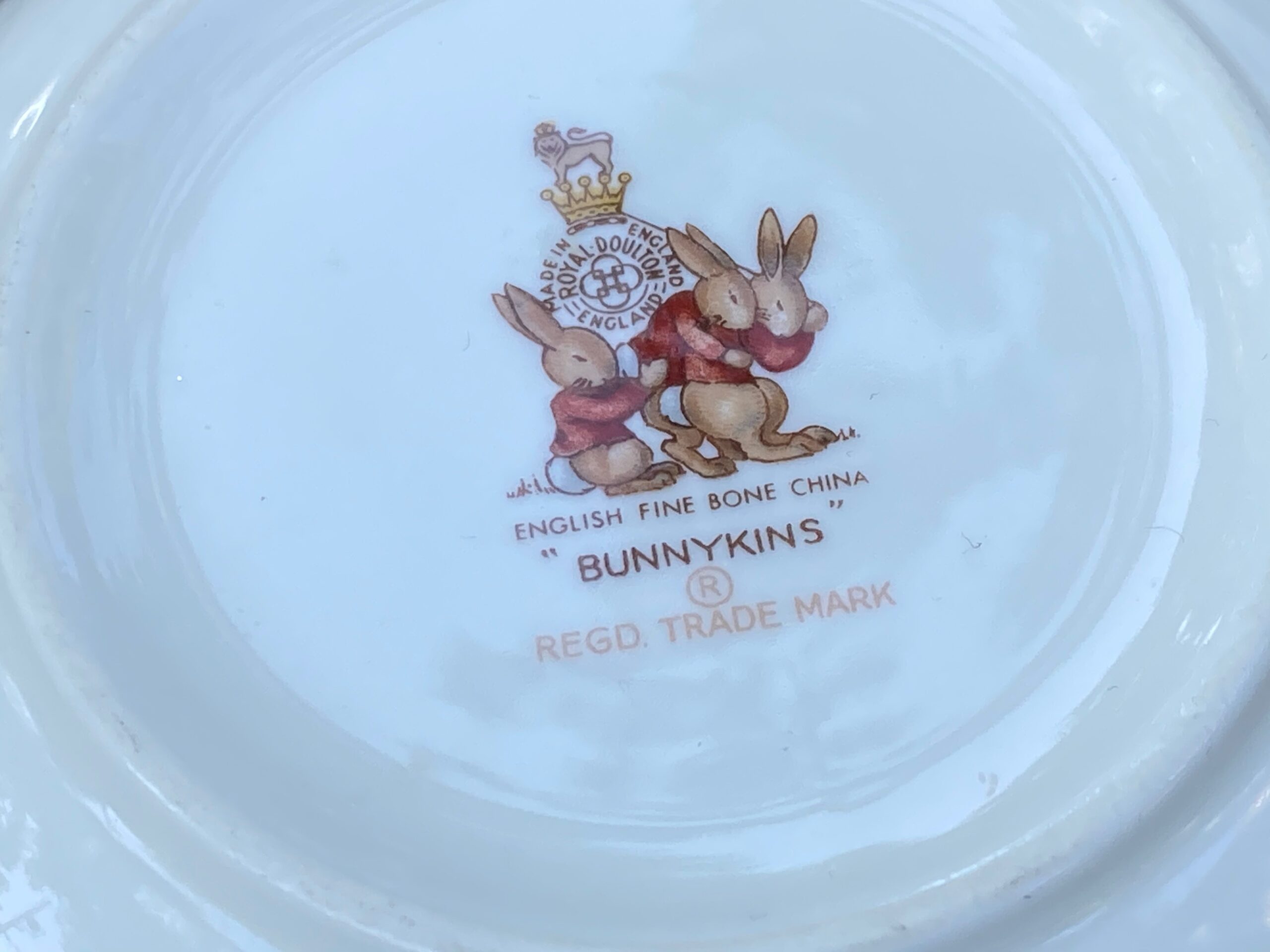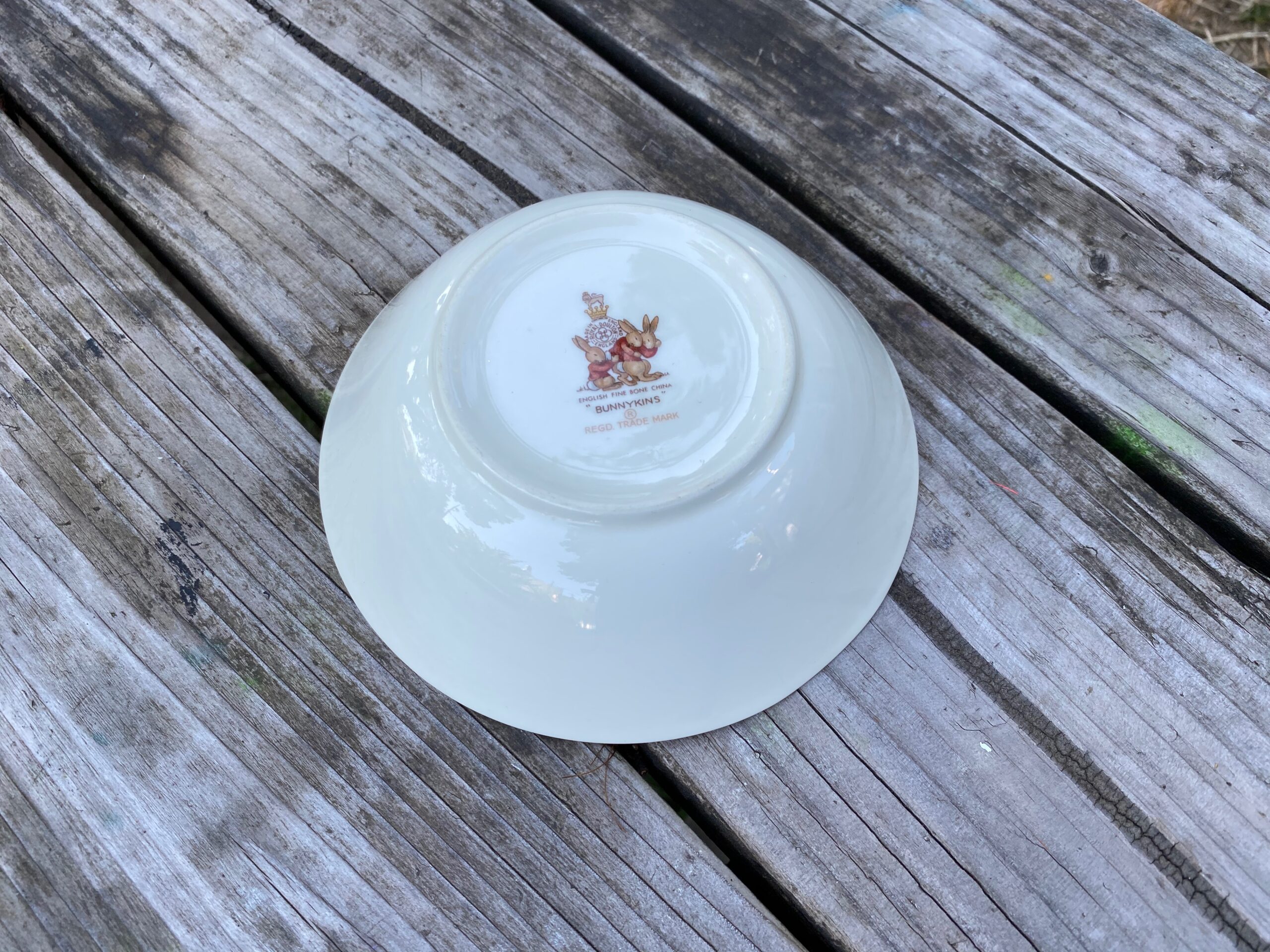1976 Bunnykins bowl: 59,000 ppm Lead (anything above 90 ppm Lead is illegal in items made today for children’s use)
Test Results Published on July 13, 2020
Updated: September 2022
When tested with an XRF instrument, the 1976 Bunnykins bowl pictured here had the following readings:
On the center of the bowl’s food surface (decorative design):
- Lead (Pb): 59,000 +/- 2,400 ppm
- Cadmium (Cd): 36 +/- 14 ppm
- Chromium (Cr): 475 +/- 126 ppm
- Tin (Sn): 155 +/- 31 ppm
- Zinc (Zn): 1,566 +/- 119 ppm
- Iron (Fe): 5,162 +/- 448 ppm
- Titanium (Ti): 470 +/- 120 ppm
On the cream-colored edge of the bowl’s center food surface:
- Lead (Pb): 50,000 +/- 1,900 ppm
- Barium (Ba): 156 +/- 75 ppm
- Zinc (Zn): 142 +/- 40 ppm
- Iron (Fe): 1,321 +/- 247 ppm
- Titanium (Ti): 475 +/- 119 ppm
- No other metals were detected.
Some additional reading that may be of interest:
- Here are more Bunnykins products Lead Safe Mama, LLC has tested.
- Plus, more Royal Doulton products we have tested.
- And more baby cups, too.
- Also, check out this article detailing more about the testing we conduct and report here on LeadSafeMama.com.
Thank you for reading and sharing this work. As always, please let me know if you have any questions.
Tamara Rubin
Owner — Lead Safe Mama, LLC
For those new to this website:
Tamara Rubin is a multiple-federal-award-winning independent advocate for childhood Lead poisoning prevention and consumer goods safety, and a documentary filmmaker. She is also a mother of Lead-poisoned children (two of her sons were acutely Lead-poisoned in 2005). Since 2009, Tamara has been using XRF technology (a scientific method used by the U.S. Consumer Product Safety Commission) to test consumer goods for toxicants (specifically heavy metals — including Lead, Cadmium, Mercury, Antimony, and Arsenic). All test results reported on this website are science-based, accurate, and replicable. Items are tested multiple times to confirm the test results for each component tested. Tamara’s work was featured in Consumer Reports Magazine in February of 2023 (March 2023 print edition).

Never Miss an Important Article Again!
Join our Email List













